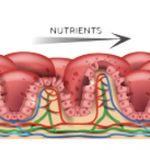Harnessing the Placebo Effect
When we discuss therapeutic options with patients, it is critical that we frame our conversations carefully. For a moment, consider these discussions from the patient’s point of view. The reams of drug information material that we provide them, the lengthy printouts attached to the prescription bottles, the side-effect warnings at the end of each television ad, all sound an ominous tone: these drugs can hurt, or even harm, you. The sheer number of side effects that are listed can drown out any of the positive attributes of a treatment or a drug. Yet, we cannot return to the days of paternalistic medicine when “doctors knew best” and saw little need to be honest and forthright with patients about their illnesses and their treatments.
We must remember that our words, attitudes, and behaviors play dominant roles in both the doctor–patient interaction and in the placebo response. Altruism, empathy, and compassionate behavior emerged sometime during the course of human evolution. It is postulated that facial expressions are likely to have evolved for eliciting medical attention from others.10 These expressions of pain were thought to trigger the caregiver’s empathic and compassionate behavior. Yes, we can be honest and compassionate at the same time. We may not win over every patient’s heart and mind, but exuding a quiet confidence, a steady determination and sense of concern will help many of those seeking our help. After all, that seems to be the way we are wired.
Dr. Helfgott is physician editor of The Rheumatologist and associate professor of medicine in the division of rheumatology, immunology, and allergy at Harvard Medical School in Boston.
References
- O’Connor A. The claim: Raisins soaked in gin can ease arthritis pain. Published October 3, 2006. Available at www.nytimes.com/2006/10/03/health/03real.html. Accessed September 13, 2013.
- Collins L. The third man. New Yorker. Published September 2, 2013. Available at www.newyorker.com/reporting/2013/09/02/130902fa_fact_collins. Accessed September 13, 2013.
- Finnissa DG, Kaptchuk TJ, Miller F, et al. Placebo effects: Biological, clinical and ethical advances. Lancet. 2010;375:686-695.
- Kaptchuk TJ, Kerr CE, Zanger A. Placebo controls, exorcisms and the devil. Lancet. 2009;374:1234-1239.
- Brown WA. The Placebo Effect in Clinical Practice. Oxford University Press: New York, 2012
- Elsenbruch S, Kotsis V, Benson S, et al. Neural mechanisms mediating the effects of expectation in visceral placebo analgesia. An fMRI study in healthy placebo responders and nonresponders. Pain. 2012;153:382-390.
- Carl Sagan. The Demon-Haunted World: Science as a Candle in the Dark. Random House: New York, 1995.
- Barsky AJ, Saintfort P, Rogers MP, et al. Nonspecific medication side effects and the nocebo phenomenon. JAMA. 2002;287:622-627.
- Myers MG, Cairns JA, Singer J. The consent form as a possible cause of side effects. Clin Pharmacol Ther. 1987;42:250-253.
- Benedetti F. Placebo and the new physiology of the doctor–patient relationship. Physiol Rev. 2013;93:1207-1246.


